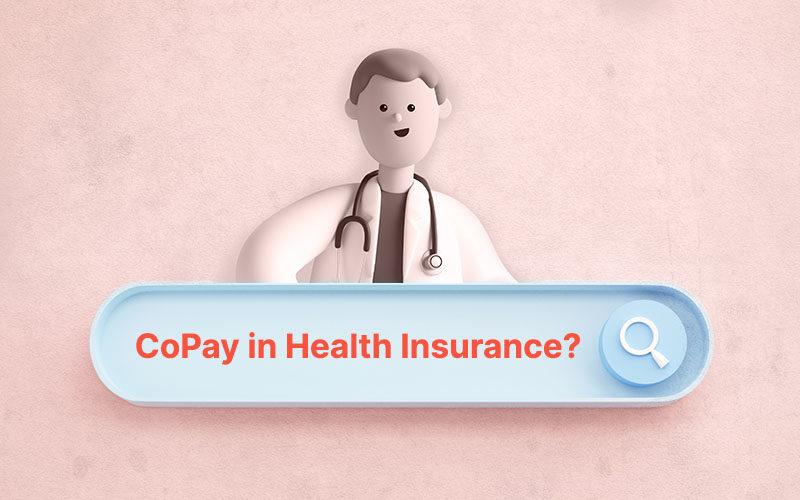Your home is your most valuable asset, and if you’ve paid off a significant chunk of your mortgage, it can also help you borrow more money for major expenses such as paying for college or renovating your kitchen. One way to leverage the equity in your home is with an FHA cash-out refinance.
What is an FHA cash-out refinance?
An FHA cash-out refinance involves paying off your existing mortgage with a new, bigger mortgage insured by the Federal Housing Administration (FHA). The amount of the bigger loan is based on your level of equity, what you still owe on your current loan and how much in extra funds you need. Ideally, the new mortgage would also come with a lower interest rate.
How an FHA cash-out refinance works
Let’s say you currently owe $200,000 on your existing mortgage, and an appraisal shows your home is worth $400,000.
With an FHA cash-out refinance, you’d be able to borrow up to $320,000 — 80 percent of your property’s value. In this case, $200,000 of that would go toward paying off your existing mortgage.
However, you don’t have to borrow the full $320,000. Let’s say you just need $100,000 to finish a major home renovation. You’d go through a new mortgage application process — similar to the work you did for your first mortgage — for a $300,000 mortgage instead. Once approved, $200,000 of that will be used to pay off your old mortgage, and you’ll begin making monthly payments on your new $300,000 loan.
There are closing costs to consider (more on that below), so you’d need to factor those in if you’re planning to roll those expenses into the new mortgage, as well. There might also be the need to establish a new escrow account.
FHA cash-out refinance requirements
The FHA has minimum requirements for FHA loans, including refinances, but FHA lenders can also set their own standards in addition to those.
- Credit score: While FHA loans often make headlines for allowing credit scores as low as 500, the reality is you’ll need a higher credit score to obtain the best deal on an FHA cash-out refinance. Some lenders will approve a credit score as low as 620, but the lowest rates will go to borrowers with credit scores of 740 or higher. If you’re hoping to do a cash-out refinance, work to improve your credit well ahead of applying.
- Debt-to-income (DTI) ratio: In most cases, your DTI ratio can’t exceed 43 percent. If you have other loans or debt, it’s wise to try to pay things down before you apply for a refinance.
- Loan-to-value (LTV) ratio: You’ll need at least 20 percent equity in your property after the cash-out refinance.
- Loan limits: There’s a cap on how much you can borrow, regardless of how much your property is now worth. In most places, the limit is $420,680 for a single-family home, but some higher-priced areas have a limit of $970,800.
- Mortgage insurance: All FHA loans, including cash-out refinances, require mortgage insurance. You’ll pay an upfront premium of 1.75 percent of the loan amount, then an annual premium for the next 11 years that ranges between 0.45 percent and 0.80 percent of the loan amount, depending on the length of your new mortgage. (While most FHA loans require mortgage insurance for the entire loan term, any with a 90 percent LTV ratio can do away with it after 11 years.)
- Occupancy and property requirements: The home needs to be your primary residence, and you’ll need to have lived in the property for at least the last 12 months. If you just moved in six months ago, you’ll need to hang tight before thinking about a cash-out refinance.
- Payment standing: You’ll need to be in good standing with your current mortgage, which means you’ve made at least the past 12 monthly payments on time.
How much money can you get with an FHA cash-out refinance?
The answer depends on a few factors, but there’s one key piece of information that’ll dictate how much cash you can get: how much your property is worth.
Let’s say you have $120,000 left to pay on your mortgage, and your home is worth $350,000. In this case, you could borrow up to $280,000 (80 percent of the value), use $120,000 to pay off your current loan and have $160,000 left. For an even more accurate estimation, factor in 4 percent for closing costs ($11,200) for a leftover sum of $148,800.
FHA cash-out refinance costs
An FHA cash-out refinance isn’t a free road to more money. You’ll need to pay closing costs on the new loan, which typically range between 2 percent and 6 percent of the loan amount. So, if you’re taking out $250,000, those closing costs might be as low as $5,000 or as high as $15,000.
Your closing costs will include an upfront FHA mortgage insurance premium (MIP) of 1.75 percent of the loan amount (in the above example, that’s $4,375). There are plenty of other fees to consider, too, including charges from your lender and for services like an appraisal and title search.
FHA cash-out refinance pros and cons
Any time you’re putting your home on the line, it’s crucial to weigh the upsides and downsides.
The pros of an FHA cash-out refinance include the potential to get approved with a lower credit score and the fact that borrowers with any kind of existing mortgage — not just FHA loans — could qualify.
Another perk of having an FHA loan can come at a surprising time: when you’re ready to move. FHA loans are assumable, meaning that another buyer who meets FHA credit qualifying guidelines could take over the loan.
“That underlying FHA mortgage could be an advantage,” says Todd Johnson, senior vice president, Southeast retail mortgage sales director for Wells Fargo. “If interest rates are much higher than they are today, the listing can market an assumable loan and potentially be easier to sell.”
The drawbacks, however, include that you’re taking on more debt (likely with higher payments) and you’ll need to pay a range of other costs like MIP, an appraisal fee and for title services. Plus, FHA cash-out refinances are only allowed on the home you live in — you couldn’t do this refinance on a rental or second home.
FHA cash-out refinance vs. other loan types
FHA cash-out vs. conventional cash-out refinance
Both an FHA cash-out refinance and a conventional cash-out refinance have the same endpoint: getting more money.
However, if you have the credit needed for the conventional route, you could opt for that to avoid paying MIP.
This is a key consideration, says Johnson. Conventional mortgages with an 80 percent LTV ratio won’t require private mortgage insurance (different from FHA MIP).
This doesn’t necessarily make a conventional loan cheaper, though. Johnson offers the example of a homeowner in Arizona with a credit score of 660 refinancing a home worth $360,000. At the time, a 30-year fixed-rate FHA was actually more affordable — a 6.267 percent APR and a $1,854 monthly payment that includes mortgage insurance — than a 30-year conventional fixed rate, which had a 7.394 percent APR and a $1,940 monthly payment. (Both excluded property taxes and homeowners insurance.)
While rates and costs vary by state and change every day, this illustration is a reminder to consider a range of options with a big financial move like refinancing.
“It’s important for the customer to always approach these conversations with lenders to make an informed choice that will make the best decision for their personal circumstances,” says Johnson.
It’s also worth a conversation with your accountant or financial advisor, who can help you understand whether refinancing will impact your ability to save.
FHA cash-out vs. FHA streamline refinance
If you don’t need to borrow more money with a cash-out, an FHA streamline refinance can be an easier route to try to save money on your monthly payments. As the name implies, the process is streamlined — less paperwork and less underwriting work needed. There are non-credit qualifying options, too, meaning you could get approved without any research on your credit score. However, FHA streamline refinances are only available to existing FHA borrowers.
| FHA cash-out refinance | FHA streamline refinance | |
|---|---|---|
| Credit score required | Generally 620 (some lenders might accept lower) | No credit documentation needed |
| Ability to take out more money | Yes | No |
| Appraisal | Yes | No |
| Available to borrowers with | Any kind of existing mortgage (conventional, FHA, VA or USDA) | Must have an existing FHA mortgage |
FHA cash-out refinance rates
As you compare FHA cash-out refinance rates, pay attention to the annual percentage rate, or APR, which accounts for the fees you’ll pay. The APR offers a more accurate picture of the cost of a loan.
For example, you might see an interest rate of 4.375 percent for a 30-year FHA refinance, which seems like a good deal. The APR, though, might be more than 5.3 percent due to mortgage insurance, discount points and other costs.
Alternatives to an FHA cash-out refinance
There are other options to borrow money that don’t involve refinancing your home. Consider these alternatives to an FHA cash-out refinance:
- Home equity loan: Instead of taking out an entirely new mortgage on your home, a home equity loan is a second mortgage. You can borrow one lump sum of money based on the amount of equity you have in your home, and you’ll pay the money back in installments over a set period of time. The fixed rates can be just as competitive as mortgage rates, and some lenders won’t charge any closing costs.
- Home equity line of credit (HELOC): A HELOC is very similar to a home equity loan, but it’s a line of credit, so you’ll borrow funds as you need them instead of taking out one large chunk of cash. Most HELOCs are variable-rate loans like credit cards, which means that your payment can fluctuate as rates move up or down, and they often come with an annual fee whether you use it or not.
- Personal loan: A personal loan is another potential way to borrow money instead of taking cash out while refinancing your mortgage. The big upsides with personal loans include the ability to get the money quickly (some lenders will get you cash the next business day) and lower credit score requirements for approval. There’s a catch, though: Many personal loans come with excessively high interest rates. Make sure you do the math before agreeing to a costly deal.





